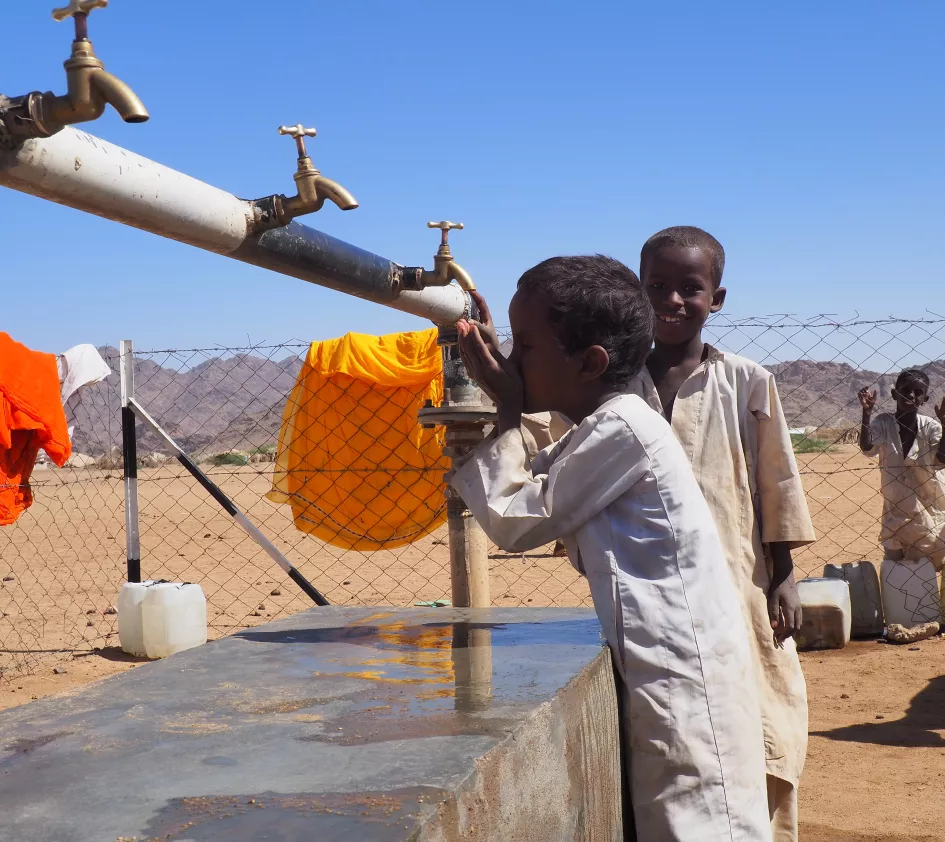In order to improve (drinking) water quality and stop open defecation practices in various cultural and geographic areas, the Community Led Total Sanitation (CLTS) approach was chosen. Because of the programme almost 200,000 Sudanese gained access to the “sanitation ladder” and stopped open defecation (OD) practices.
This programme was funded by UKaid and the European Union and implemented by the Aqua4Sudan partnership. This partnership consisted of International Aid Services, Islamic Relief Worldwide, Practical Action, Plan Sudan, SOS Sahel, World Relief and ZOA. The targeted locations of the programme were the Red Sea, Kassala, Gedaref, North Darfur, South Darfur and West Darfur states.

Technical Paper: Sanitation for all in Sudan
In this paper in the technical paper series on Integrated Water Resource Management (IWRM) in Sudan, Harm Bouta describes the Aqua4Sudan Partnership’s contribution to the National Road Map for an Open Defecation Free Sudan. Challenges experienced and lessons learned during the implementation of CLTS at scale in different settings in Sudan will be useful to Sudanese government officials involved in the sanitation sector in Sudan, as well as to international researchers and practitioners interested in sanitation experiences in Sudan.
impact
A behaviour change approach to sanitation
Rural Water for Sudan is a development programme that ran in Sudan from 2015 to 2020. The programme aimed at enhancing the well-being and health of people living in rural areas by improving their access to water, sanitation, livelihoods, and food security. Sanitation was a key component of the Rural Water for Sudan programme.
